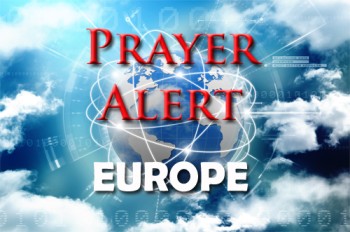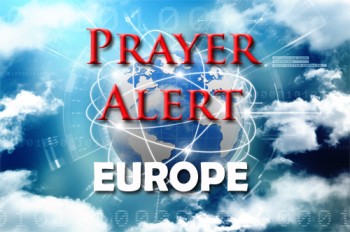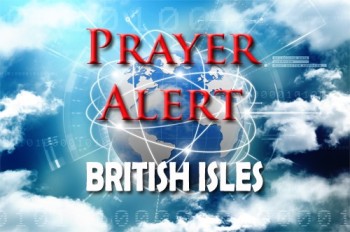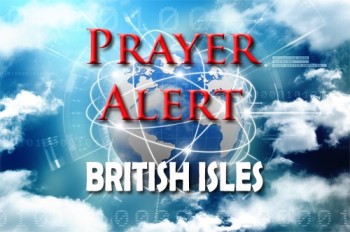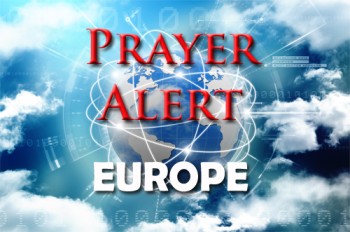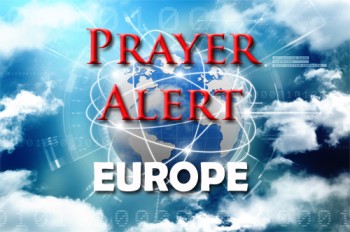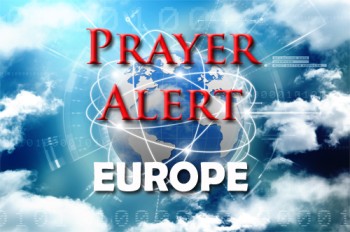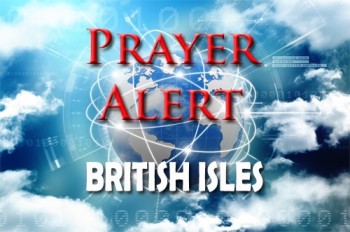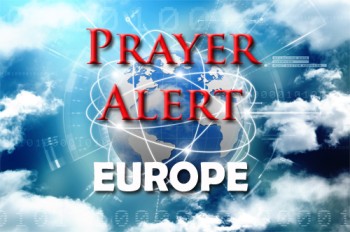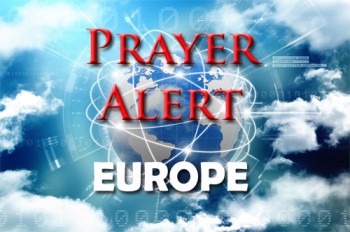Displaying items by tag: EU
EU / USA: Trump backs away from extra tariffs – for now
Donald Trump has paused a proposed 50% tariff on EU goods, extending the negotiation deadline to 9 July after a phone call with EC president Ursula von der Leyen. She requested more time to reach a deal, which Trump agreed to, calling the EU ‘willing to negotiate’. While both sides seek a resolution, the USA remains firm on maintaining a 10% base tariff, rejecting the EU’s recent offer to eliminate industrial tariffs and boost cooperation in AI and energy. Trump’s stance stems from concerns over the EU’s significant trade surplus and regulatory barriers. Meanwhile, the EU has approved retaliatory tariffs worth billions, set to begin on 14 July if talks fail. The escalating tensions risk sparking a costly trade war, which the IMF warns could shrink GDP on both sides. EU and US officials are set to meet next month in Paris to seek resolution. In preparation for these, the EU has requested firms to give details of their dealings with US companies: see
EU: court rules against EC refusal to release text messages to Pfizer
The EU General Court has ruled that the European Commission failed to justify its refusal to release text messages between Ursula von der Leyen and Pfizer CEO Albert Bourla regarding Covid-19 vaccine contracts. The case, brought by the New York Times, has been described as a landmark in institutional transparency. The EC had argued that texts are too ephemeral for official documentation, but the court rejected this, stating that all communication must be treated as potentially subject to public access. Critics, including the EU Ombudsman, had said that the secrecy risked favouring private interests over public welfare. Previous attempts to obtain vaccine contract details had also been met with redactions and resistance. Reacting to the decision, one commentator said, '(It is) everyone’s win as this judgment is set to lead greater accountability of EU leaders' actions’.
Britain set for a new trade partnership with EU
Britain and the EU are set to formalise a new strategic partnership to strengthen trade ties and present a united front against Donald Trump's global tariff agenda. A leaked draft declaration, dated 25 April, affirms a mutual commitment to ‘free and open trade’ and to maintaining global economic stability. The agreement will be signed at a UK-EU summit on 19 May, marking a key moment in post-Brexit relations. Meanwhile, the Government is engaged in separate negotiations with the USA, aiming to soften the impact of existing tariffs - currently 10% on UK goods and 20% on EU exports. US press secretary Karoline Leavitt said that talks are ‘moving in a very positive way’. Rachel Reeves met with US treasury secretary Scott Besent last week, emphasising that both UK-EU and UK-US trade relationships are vital. Despite Trump reportedly viewing the 10% UK tariff as a minimum, British officials remain optimistic about securing a mutually beneficial deal.
Starmer close to EU arms deal - at the expense of fishermen
The UK is nearing a pivotal defence and trade agreement with the EU that could grant British arms companies access to a €150 billion European defence fund. In return, Keir Starmer’s government appears ready to concede on fishing rights - an issue that has stirred strong domestic opposition. The arrangement includes freezing fishing quotas and moving to a multi-year deal, rather than annual negotiations, in exchange for wider EU market access for UK defence firms. Critics argue this trade-off risks sacrificing the UK fishing industry’s post-Brexit gains. The National Federation of Fishermen’s Organisations has labelled the deal 'neocolonial’, with significant UK quotas already owned by foreign boats. Still, the economic contrast is stark: defence exports total £14.5 billion annually, compared to £1.7 billion in fish sales. The summit on 19 May is expected to formalise broader EU cooperation, including defence partnerships, dynamic alignment on food standards and emissions, and a debated youth mobility scheme. Starmer insists these moves are strategic steps toward global stability, security, and economic resilience amidst growing international challenges.
EU imposes fines on two US firms
The EU has fined Apple €500 million and Meta €200 million under the Digital Markets Act (DMA), its first enforcement action against Big Tech under the new law. Apple was penalised for limiting access to alternative apps, while Meta’s ‘consent or pay’ model for data usage was deemed to offer users inadequate choice. Both firms have reacted angrily, with Apple accusing the EU of endangering user privacy, and Meta claiming it is being unfairly targeted compared to European and Chinese companies. Though these are relatively small fines for these tech giants, the move signals the EU’s intent to hold even powerful firms accountable. Experts see the ruling as a test of sovereignty in digital regulation, but US firms argue that the EU is unfairly shaping their business models. US-EU tensions are mounting, especially after Donald Trump’s recent tariffs on European goods. The UK and other nations are launching parallel investigations into monopolistic practices.
Asylum applications: EU issues list of ‘safe’ countries
The EU has proposed a new list of seven ‘safe countries of origin’ - Kosovo, Bangladesh, Colombia, Egypt, India, Morocco, and Tunisia - to fast-track asylum applications from citizens of those nations. The assumption is that most of these claims will be denied, allowing decisions within three months. The move is part of ongoing efforts to reform the EU’s asylum process, following the 2015–2016 migrant crisis and persistent low return rates (only 20% of rejected applicants are deported). The plan allows countries to process claims faster if fewer than one in five applicants from a specific country are granted protection. Countries applying for EU membership will also be presumed safe unless affected by war. Italy’s right-wing government welcomed the list, but human rights groups raised concerns, warning that these countries have documented abuses and lack full protections. The EU said that individual case reviews will still be required, despite the fast-track designation. The proposal awaits approval from both the European Parliament and member states.
Trade: EU’s desire to negotiate with Trump
The EU has signalled its readiness to negotiate with Donald Trump, hoping to avoid a damaging trade conflict. Ursula von der Leyen highlighted growing global competition and warned against trade policies that disrupt economic bonds. Trump’s administration has begun investigating US trade deficits and unfair practices: Germany is a potential target, but chancellor Olaf Scholz has expressed cautious optimism after his first contacts with Trump's administration. Von der Leyen reaffirmed the EU’s commitment to collaboration with global partners, including India and China; she also voiced support for the Paris climate agreement, which Trump has exited. Noting that trade between the USA and the EU is worth 1.5 trillion euros, she said, ‘No other economies in the world are as integrated as we are. So our first priority will be to engage early, discuss common interests, and be ready to negotiate.’ EU officials see Trump’s policies as a wake-up call to fix their economies and become more competitive.
Davey calls for UK to join EU customs union to ‘turbocharge’ economy
Liberal Democrat leader Sir Ed Davey has called on the UK to negotiate a new customs union with the EU by 2030, arguing it is the 'single biggest thing' the country can do to strengthen its economy. In his first major speech of the year, he urged the Government to replace the Conservative-brokered Brexit deal with one allowing freer movement of goods between Britain and the EU. He claims this approach would enable the UK to negotiate with a second Trump administration from a position of strength, reducing reliance on the US. He criticised Kemi Badenoch and Nigel Farage for prioritising US interests over Britain’s. Keir Starmer has pledged to deepen ties with the EU but has ruled out rejoining the customs union. The Government rejected Davey’s proposal, emphasising its commitment to avoid reopening Brexit divisions. Davey maintains that rebuilding ties with Europe is crucial for economic stability and security.
Hungary: Orbán claims EU wants to install a puppet regime
In a fiery speech commemorating the 1956 uprising, Viktor Orbán has accused the EU of plotting to topple his government and install a ‘puppet regime’. He compared past occupations of Hungary by the Ottoman Empire and the Soviet Union to current tensions with the EU. He also claimed the EU is pushing Hungary into Russia's war in Ukraine, criticising Brussels' support for Kyiv. Hungary has repeatedly blocked or diluted EU sanctions on Russia and aid to Ukraine, aligning itself closer to Moscow. Also, Orban’s government has recently been fined €200 million by the European Court of Justice for ‘unprecedented and exceptionally serious breach of EU law’ because of the country's strong restrictions on the right to asylum.
EU: von der Leyen calls for tougher migrant deportations
European Commission president Ursula von der Leyen has suggested that the EU could learn from Italy’s controversial new policy of processing migrants offshore in Albania. She has proposed new legislation to increase deportations, noting that only 20% of irregular migrants ordered to leave EU countries actually do so. Italy’s scheme, which began on 15 October when sixteen migrants were transferred to Albanian processing centres, has sparked criticism from opposition parties and NGOs for being costly and potentially harmful to human rights. The €650 million project excludes vulnerable groups like pregnant women and children. Prime minister Giorgia Meloni defended the scheme as a courageous approach which ‘perfectly reflected the European spirit’. Recently Germany, France, and Poland have tightened their borders and immigration laws, driven in part by security concerns following violent incidents involving failed asylum seekers.
